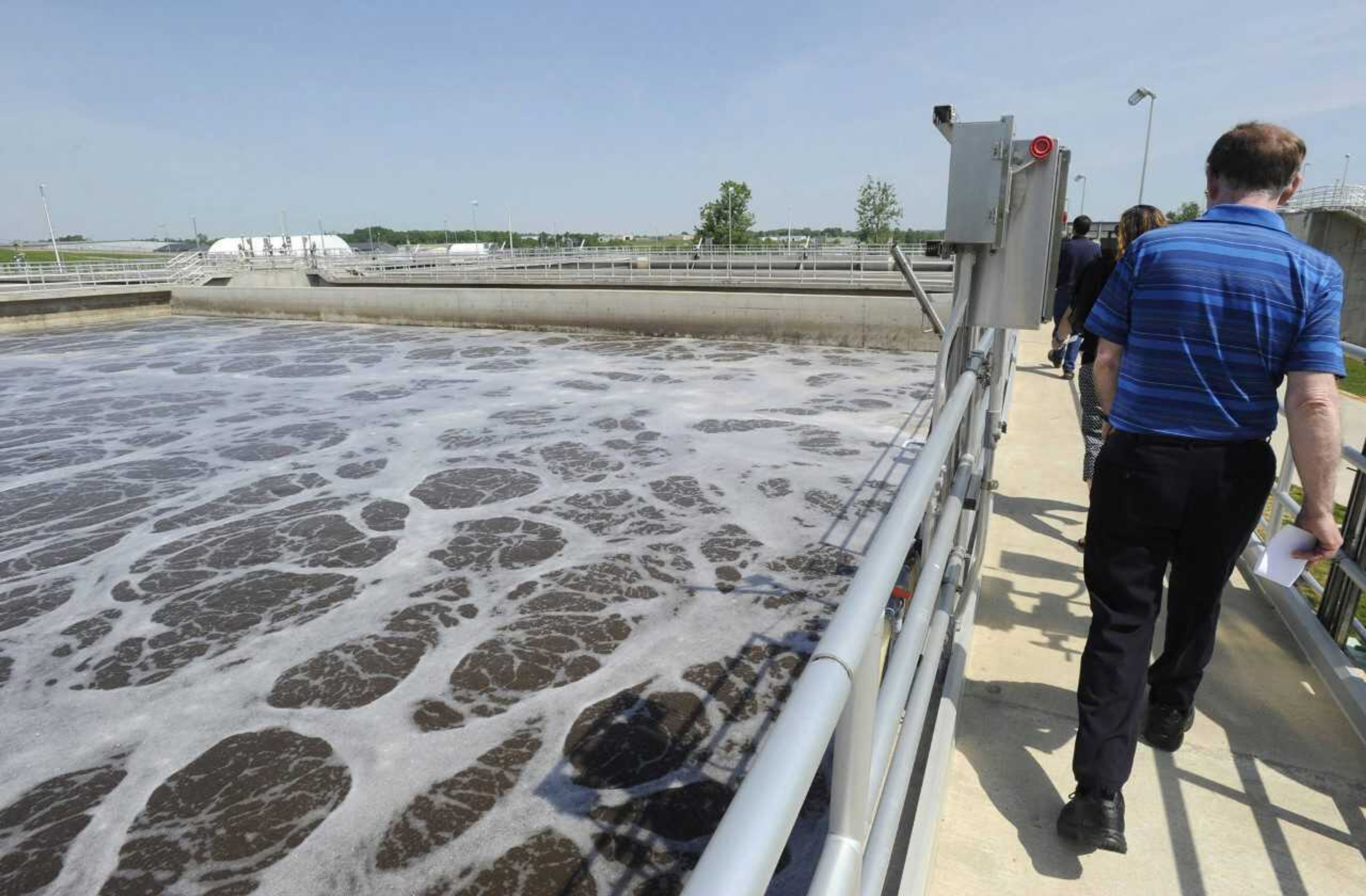City of Cape Girardeau to use ARP funds for sewer improvements
Something has found its way into the City of Cape Girardeau's sewer system, and it's worse than the remnants of what you ate for lunch yesterday. Defects in the city's sewer system allow storm and groundwater into the system. This water, according to Public Works director Stan Polivick, can lead to backups, decreases system capacity and costs the city money...
Something has found its way into the City of Cape Girardeau's sewer system, and it's worse than the remnants of what you ate for lunch yesterday.
Defects in the city's sewer system allow storm and groundwater into the system. This water, according to Public Works director Stan Polivick, can lead to backups, decreases system capacity and costs the city money.
To help solve this issue, the City of Cape Girardeau will use $3 million in American Rescue Plan (ARP) funds to make necessary repairs.
A 2015 study in Cape Girardeau found several sewer system defects related to inflow (stormwater finding its way into the sewer system through cracks) and infiltration (groundwater seeping into the system through cracks, holes, connection failures, etc.).
This problem is not new or uncommon, according to Polivick. Portions of the needed repairs were completed after the 2015 study was completed in 2017, but several fixes remain.
Polivick said the city has worked throughout the decades to repair its outdated sewer system. On Monday, he said over 80 pipe segments have defects.
"The work we're going to do, and that we've been doing for decades, has to do with trying to find those defects and get them patched so they'll stop leaking," Polivick said. "This will keep rainwater out of the sewer system because it doesn't belong there."
A project coming this year will work to repair pipes and manholes with cured-in-place pipe technology. Through this process, fabric liner soaked in resin will be inserted into pipes. The fabric hardens and forms a new pipe after it's activated by water, according to Polivick.
"One big advantage to this is you don't have to dig, and there will be one continuous pipe from manhole to manhole so no joints can leak," Polivick said. "That's typically where our problems are."
In a Friday interview, Cape Girardeau Mayor Bob Fox said infiltration and inflow is the biggest problem the city faces in relation to stormwater maintenance.
"The system has been there for 100 years in a lot of places, and it's been there for 50 years in a lot of places," Fox said. "People are going to get backups because of the way our system is designed. We have spent a considerable amount of money trying to correct those."
According to flow data from May 2020 to May 2021, 33% of estimated total sewer system flow was because of inflow and infiltration. This costs the city money as the wastewater plant uses resources to treat wastewater it typically shouldn't.
The sewer system will still need repairs after this project is completed. It may take 15 to 20 years for all inflow and infiltration work to be completed, according to Polivick.
"We probably have nine to 10 million worth of work that needs to be done after that $3 million," Polivick said. After this project, "We would be in the position to go back in and evaluate the system and find where the newer leaks are."
The sewer project may begin this fall after the project is bid, Polivick said.
Funding
Local governments receive Coronavirus State and Local Fiscal Recovery Funds in two tranches.
City of Cape Girardeau finance director Dustin Ziebold said the city received the first half of its total $8.2 million allocation on June 28. The second half is expected around the same time this year.
According to Southeast Missourian reporting from June, Cape Girardeau City Council approved a strategy for spending American Rescue Plan funds.
Along with sewer repairs, Ziebold proposed disbursing $4.58 million of ARP funds to make up for lost public sector revenue during the pandemic.
Ziebold also proposed using $750,000 for programs and services, including Shawnee Park programming, a city notification system, providing a one-time payment to an organization for homeless assistance, among several other proposed uses.
Connect with the Southeast Missourian Newsroom:
For corrections to this story or other insights for the editor, click here. To submit a letter to the editor, click here. To learn about the Southeast Missourian’s AI Policy, click here.










